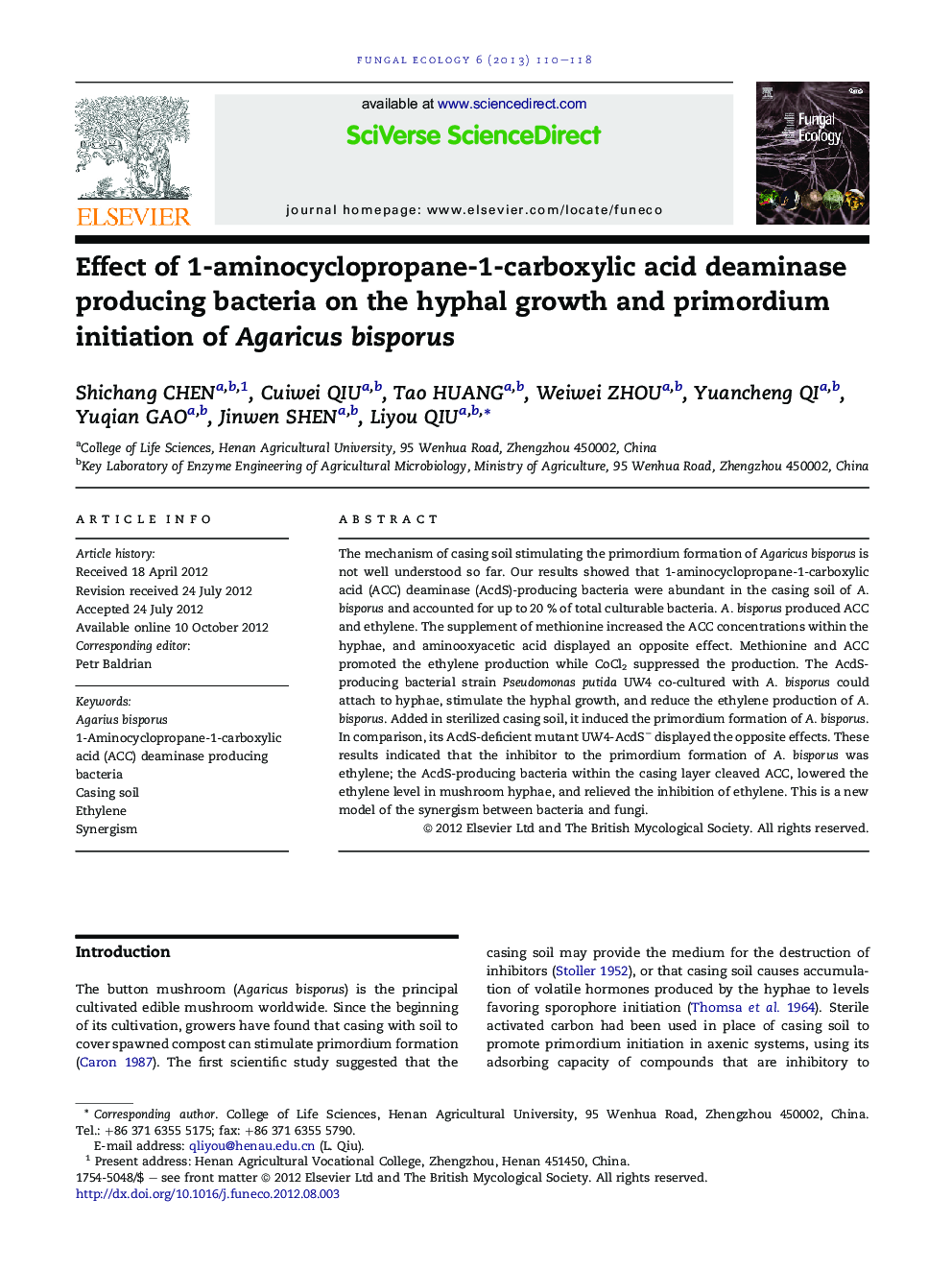| Article ID | Journal | Published Year | Pages | File Type |
|---|---|---|---|---|
| 2053983 | Fungal Ecology | 2013 | 9 Pages |
The mechanism of casing soil stimulating the primordium formation of Agaricus bisporus is not well understood so far. Our results showed that 1-aminocyclopropane-1-carboxylic acid (ACC) deaminase (AcdS)-producing bacteria were abundant in the casing soil of A. bisporus and accounted for up to 20 % of total culturable bacteria. A. bisporus produced ACC and ethylene. The supplement of methionine increased the ACC concentrations within the hyphae, and aminooxyacetic acid displayed an opposite effect. Methionine and ACC promoted the ethylene production while CoCl2 suppressed the production. The AcdS-producing bacterial strain Pseudomonas putida UW4 co-cultured with A. bisporus could attach to hyphae, stimulate the hyphal growth, and reduce the ethylene production of A. bisporus. Added in sterilized casing soil, it induced the primordium formation of A. bisporus. In comparison, its AcdS-deficient mutant UW4-AcdS− displayed the opposite effects. These results indicated that the inhibitor to the primordium formation of A. bisporus was ethylene; the AcdS-producing bacteria within the casing layer cleaved ACC, lowered the ethylene level in mushroom hyphae, and relieved the inhibition of ethylene. This is a new model of the synergism between bacteria and fungi.
► ACC deaminase promoted hyphal growth and primordia formation of Agaricus bisporus. ► A. bisporus had a similar ethylene biosynthesis pathway to higher plants. ► The self-inhibitor to the primordial formation of A. bisporus was ethylene. ► Mechanism of casing to stimulate primordia formation of A. bisporus was discovered.
